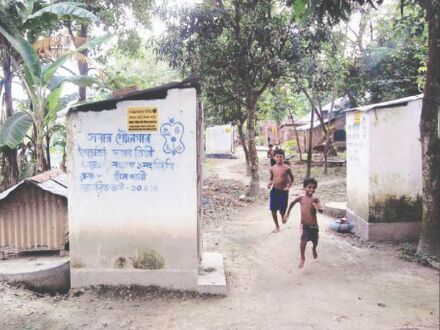Water tanks to be set up next to all toilets in rural Bengal

Kolkata: The state Panchayats and Rural Development department will carry out a massive campaign to ensure that rural populace use toilets built under Mission Nirmal Bangla properly. To make the venture successful, the department would set up water tanks attached to the toilets.
The state has already become Open Defecation Free with construction of toilets in households in every Gram Panchayat. Nadia became the country's first Open Defecation Free district (ODF). Now, the need to construct water tanks just beside the toilets has been felt to ensure that villagers do not go for open defecation due to lack of water supply near toilets.
"We are going to initiate a massive awareness drive engaging different NGOs to ensure that the rural populace uses the toilets properly," said the state Panchayats minister Subrata Mukherjee.
Mission Nirmal Bangla was launched on World Toilet Day — November 19 — in 2013. Almost a year later, the Centre had launched the Swachh Bharat Mission (Gramin).
After the baseline survey conducted in 2012-13, around 66.34 lakh individual household latrines have been constructed in all Gram Panchayats of the state. Around 120 Gram Panchayats have started adopting scientific Solid Waste Management even in the villages. Around 3,452 public toilets have been built.
Around Rs 755 crore was spent for the project in the 2020-21 fiscal and a budget of Rs 650 crore has been proposed for Mission Nirmal Bangla in 2021-22.
In 2021-22, the state government planned to strengthen the communication interventions further to sustain the newly-acquired ODF status in all districts. Around 7.21 lakh individual household latrines and 2,469 additional community sanitary complexes are proposed to be constructed in various Gram Panchayats.
At the same time, around 512 additional Gram Panchayats are to be extended with scientific solid and liquid waste disposal facilities. At least 10 special Faecal Sludge Management systems and nine Gobar Gas projects are to be constructed. A mechanism for mid-term evaluation of ODF sustenance in different districts has also been proposed.



